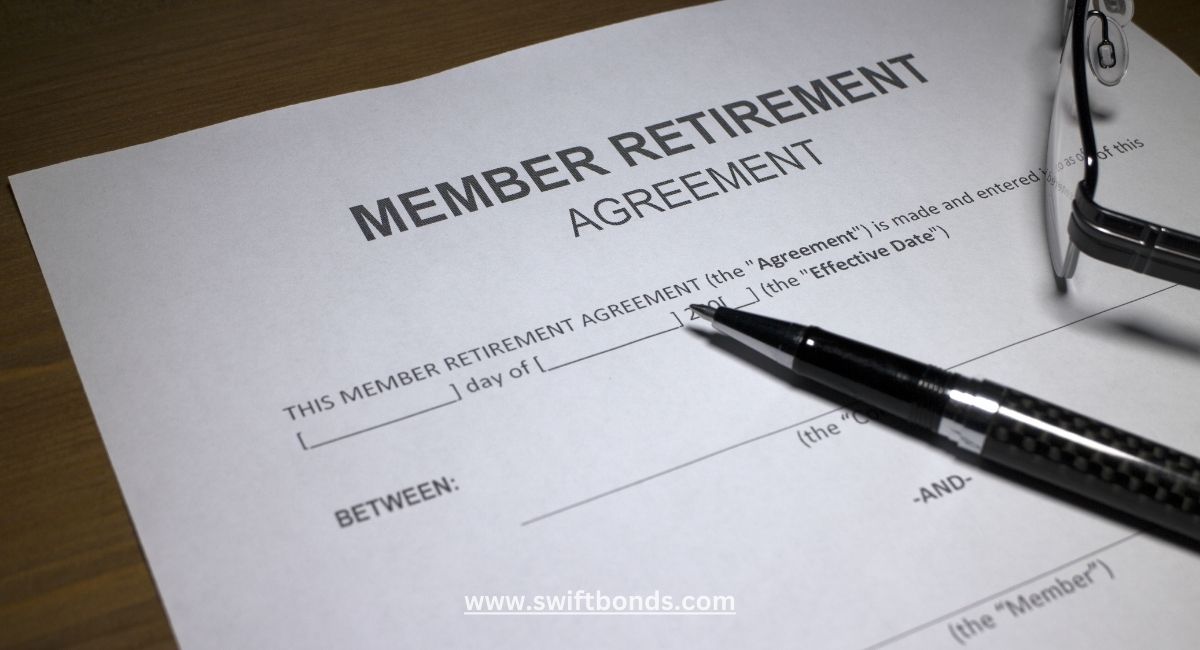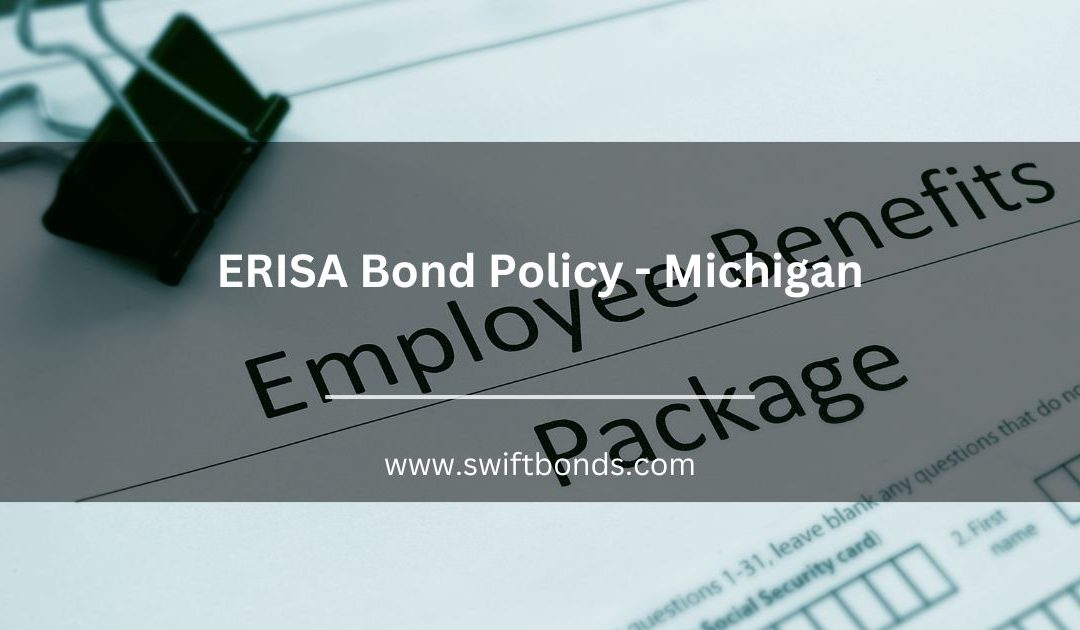Get an Instant Quote on ERISA Bond Policy
Introduction
From our perspective, business owners in Michigan who manage employee benefit plans want to do things the right way—protecting their workers and their business at the same time. The ERISA Bond Policy - Michigan is a legal requirement that provides protection for employee benefit plans, such as 401(k)s, pension plans, and health savings accounts.
This bond is required under the Employee Retirement Income Security Act of 1974 (ERISA) for any fiduciary who handles funds or property tied to employee benefit plans. Its purpose is straightforward: it protects the plan against loss resulting from fraud or dishonesty by the people managing those funds. If money goes missing, the bond helps make the plan whole again.
For Michigan employers—whether they're in construction, education, healthcare, or any other industry—this bond demonstrates compliance and accountability. It helps ensure that employees’ hard-earned benefits are protected, and it gives plan participants peace of mind. Whether you're just setting up a plan or expanding your workforce in Taylor or Detroit, the ERISA bond is a required and meaningful safeguard.
Why Employers Get Confused
We’ve noticed that employers often confuse this bond with insurance, or think it’s only needed if the company suspects fraud. That’s not the case. The ERISA Bond Policy - Michigan is required by federal law for anyone who has access to the assets of an employee benefit plan. It must be in place whether there’s a problem or not—and failing to have it can trigger fines, penalties, or worse.
There’s also uncertainty around how much coverage is needed. Many employers guess at the amount or assume their general liability policy covers it. In fact, ERISA bonds must cover at least 10% of the plan assets, up to $500,000, or more in some cases. That means companies managing larger plans must calculate their bond amounts carefully and update them as the plan grows.
Contractors who already manage union wage plans—such as those who carry a Michigan Regional Council of Carpenters - Wage & Welfare Bond—might assume they’re already covered. But that bond protects different obligations under a labor agreement, not fiduciary risk. The same goes for public infrastructure contractors working under permits like the City of Taylor, MI - Drainlayer ($20,000) Bond—those bonds protect cities, not employee plans.
Understanding these differences helps business owners stay compliant and avoid preventable violations.

How Swiftbonds Helps
Based on our experience, plan sponsors and business owners need a reliable source to help them comply with ERISA bond requirements—without confusion or delay. Swiftbonds specializes in bonding solutions for Michigan businesses, including those required under federal regulations.
We make it easy to determine how much coverage your plan requires, complete the necessary application, and receive the bond quickly. Whether you’re setting up a new 401(k) or reviewing your obligations during an audit, our team is here to provide support and accurate documentation every step of the way.
Many Michigan companies already use Swiftbonds for other obligations—such as securing the Michigan Regional Council of Carpenters - Wage & Welfare Bond for labor compliance or the City of Taylor, MI - Drainlayer ($20,000) Bond for city permit approval. We’re familiar with the documentation and regulatory expectations for each type of bond, which helps you stay organized and compliant.

Steps to Get This Bond
What we’ve discovered is that getting an ERISA Bond Policy - Michigan is a clear, manageable process when approached step by step:
-
Calculate the Required Bond Amount – Determine the value of plan assets handled by the fiduciary. The bond must cover at least 10% of those assets.
-
Apply with Swiftbonds – Complete a short application online with basic business and plan details.
-
Underwriting Review – Our team reviews your application. In most cases, no credit check or financials are required unless the bond is above standard thresholds.
-
Get Your Bond Issued – Most ERISA bonds are issued within 24–48 hours. You’ll receive your bond certificate to keep on file for compliance or audit purposes.
-
Renew Annually – ERISA bonds must be renewed every year. Swiftbonds provides reminders so you never miss a renewal deadline.
This process removes the guesswork and gives you confidence in your plan’s compliance with ERISA requirements.

Why Timing Matters
We’ve found that many employers only start looking into ERISA bonding after they’re audited, or when an outside administrator flags it during plan setup. Waiting until then increases the risk of noncompliance—and makes it harder to resolve issues quickly.
Bonding problems often come up alongside other compliance concerns. For example, a contractor might discover they need both an ERISA bond and a Michigan Regional Council of Carpenters - Wage & Welfare Bond when reviewing employee benefit contributions. Or a business renewing municipal permits might also need to update its City of Taylor, MI - Drainlayer ($20,000) Bond as part of a broader licensing process.
The earlier you act, the easier it is to protect your company and your employees. Keeping your bond current is a small task that avoids far bigger problems down the road.

What Happens Without This Bond
In our observation, skipping the ERISA Bond Policy - Michigan can create serious legal and financial headaches. The Department of Labor requires these bonds under federal law. Failure to comply may lead to plan disqualification, penalties, or fiduciary liability. That could mean personal liability for company officers or plan trustees.
ERISA bonds are often reviewed during plan audits, mergers, or changes in fiduciary responsibilities. If your bond is missing or underfunded, it’s a red flag that can lead to further investigation. That’s a risk no employer wants to take.
We’ve seen similar consequences in other bonding situations. Businesses that forget to update their Michigan Regional Council of Carpenters - Wage & Welfare Bond may lose union access. Contractors who ignore their City of Taylor, MI - Drainlayer ($20,000) Bond requirement can face project delays or permit revocation. The lesson is clear: bonds protect your obligations, and falling behind can hurt your operations and credibility.
What Success Looks Like
We’ve learned that when companies understand and meet their bonding requirements, it creates trust, compliance, and confidence. With an active ERISA Bond Policy - Michigan, your plan is protected, your audit risk is reduced, and your business remains in good standing with federal regulations.
Swiftbonds helps you stay ahead by making bonding simple. Whether you’re managing union labor and holding a Michigan Regional Council of Carpenters - Wage & Welfare Bond, maintaining city project permits like the City of Taylor, MI - Drainlayer ($20,000) Bond, or overseeing employee benefits under ERISA, our team is here to support your success.
With the right bonds in place, you protect your people, your projects, and your peace of mind.
Michigan Bonding Compliance
The ERISA Bond Policy - Michigan is required under the Employee Retirement Income Security Act of 1974, a federal law enforced by the U.S. Department of Labor. The bond must be in place for any fiduciary who “handles” plan assets—defined as having access or control over plan funds.
Bond coverage must equal at least 10% of the plan assets handled during the previous year. The minimum required coverage is $1,000, and the maximum generally is $500,000. For plans that hold employer securities, the maximum may be $1,000,000.
In addition to ERISA, Michigan contractors working on public projects may need to comply with the Michigan Little Miller Act (Mich. Comp. Laws § 129.201), which mandates performance and payment bonds for public work over $50,000. Those bonds differ from ERISA bonds, as they protect project owners, not employee benefit plans.
Michigan businesses may also need municipal bonds like the City of Taylor, MI - Drainlayer ($20,000) Bond or union-compliance bonds like the Michigan Regional Council of Carpenters - Wage & Welfare Bond, depending on their operations.
For legal guidance, visit the U.S. Department of Labor or the Michigan Legislature’s official site.
Conclusion
We’ve come to appreciate that the ERISA Bond Policy - Michigan isn’t just a regulatory box to check—it’s a commitment to protecting your employees and fulfilling your fiduciary responsibilities. When this bond is in place, you’re doing more than complying with the law—you’re building trust and long-term confidence in your benefit programs.
At Swiftbonds, we’re ready to help with every bond you need. Whether it’s your ERISA bond, your Michigan Regional Council of Carpenters - Wage & Welfare Bond, or your permit bond like the City of Taylor, MI - Drainlayer ($20,000) Bond, our team is committed to making the process fast, affordable, and accurate.
Start your application today and protect your plan, your business, and your peace of mind.
Frequently Asked Questions
What does the ERISA Bond Policy cover?
We’ve often noticed people ask this. The bond protects employee benefit plans from losses resulting from fraud or dishonesty by plan fiduciaries who handle plan funds.
Who needs an ERISA bond in Michigan?
Any person or entity who has access to or control over employee benefit plan assets in Michigan is required to have this bond, including plan sponsors and fiduciaries.
How much bond coverage is required?
The bond must cover at least 10% of the value of plan assets handled during the prior plan year, with minimum and maximum limits set by ERISA law.
Is this the same as a Wage & Welfare Bond or a city bond?
No. This bond protects employee benefit plans under federal ERISA law. It is not the same as the Michigan Regional Council of Carpenters - Wage & Welfare Bond or the City of Taylor, MI - Drainlayer ($20,000) Bond, which protect different obligations.
How long does it take to get an ERISA bond issued?
Most ERISA bonds are issued within 24 to 48 hours through Swiftbonds. The application is straightforward, and most plans qualify without needing a credit check.


